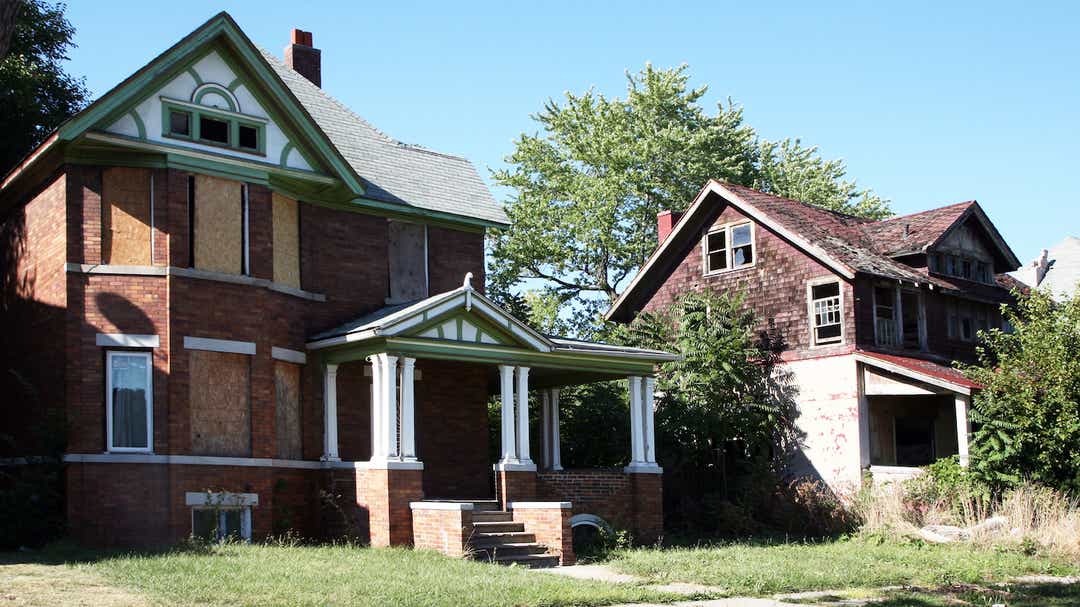On April 5th, USA TODAY reporter Paul Davidson wrote a piece on the big gains folks reaped buying starter homes as housing markets rebounded from the long 2006-2011 housing crash.
Buying in low-cost suburbs, folks could upgrade to larger “forever” homes in just several years. They used starter-home gains to fund bigger down payments. It was a great financial win for young families. It also supports one of the most controversial things I’ve ever said here: Owning a home is wonderful, but don’t bank on real estate as your chief retirement investment.
People looking to real estate today for retirement riches often point to those big post-crisis gains. Trouble is, you can’t buy past performance. And the recent past probably isn’t a blueprint for the next 10, 20, 30 years or more.
After the housing bubble popped in 2006, prices tanked for five years, bottoming in 2011. Returns since that time are a near-perfect V-shaped recovery — a point that a chart in Paul Davidson’s story shows. As a general but not perfect rule, what gets hammered the hardest on the way down rebounds the strongest. Starter homes were punished most in the crash. So they rallied most in the recovery. But this bounce effect has largely matured.

Moving up: How to take the stress out of selling your house and buying another home
Farm crisis? Low prices, floods and trade wars plague American farmers, putting their survival at risk
Like all assets, home prices move on supply and demand. The key to both? Location, location, location. The housing market isn’t uniform nationally or even within the same city. Anyone looking to hop onto San Francisco’s property ladder or other coastal hotspot knows this. Coloradoans may have scored entry-level homes for roughly $200,000 in 2012, but no such luck for would-be first-time homebuyers in Californian metropolises or New York. The cost of Silicon Valley starter homes can come close to $2 million, depending on style and neighborhood. That’s your first clue real estate is a geographically fragmented game.
Even where it’s cheaper to buy, eye-popping gains aren’t guaranteed. If you buy where new construction is limited and job opportunities are humming, keeping supply low relative to demand, you may do very well. But what if you buy where construction eventually outpaces job creation and population growth? What if a city is focused on one or two industries, and what if they fall from favor and fizzle? What happens to San Jose prices if tech crashes and burns? What of Houston when the energy industry hits the skids? What if your neighborhood school system takes a perceived quality dive relative to nearby communities?
Counting on real estate for your retirement nest egg is a very long-term bet on weak real estate development plus good economic fortune — both in one location. You’re betting your town will attract people with good jobs and maintain schools long-term—and that politicians will limit new development. You’re betting some hot new suburb won’t steal your hamlet’s thunder.
Instead, if you see a home purchase as merely guaranteeing a roof over your head and protecting against rising rents, things look different. You don’t shun a neighborhood because more housing construction might constrain property values. If all the jobs move, you can too, even if that means having to rent for a few years. You needn’t stress about timing your purchase just right or not picking the highest-flying neighborhood. You can simply go where you and your family feel most at home —whether it's a green suburban neighborhood or a hip, hot urban townhouse.
Homes are great. Banking on them for retirement income isn’t.
Ken Fisher is founder and executive chairman of Fisher Investments, author of 11 books, four of which were New York Times bestsellers, and is No. 200 on the Forbes 400 list of richest Americans. Follow him on Twitter: @KennethLFisher
The views and opinions expressed in this column are the author’s and do not necessarily reflect those of USA TODAY.
https://www.usatoday.com/story/money/2019/06/09/retirement-savings-shouldnt-depend-real-estate-profits/1359794001/
2019-06-09 11:02:00Z
CAIiEO2bpCCGaeUWQJc4rm50N6UqGQgEKhAIACoHCAowjsP7CjCSpPQCMM_b5QU
Bagikan Berita Ini














0 Response to "3 reasons real estate is a lousy retirement investment: location, location, location - USA TODAY"
Post a Comment